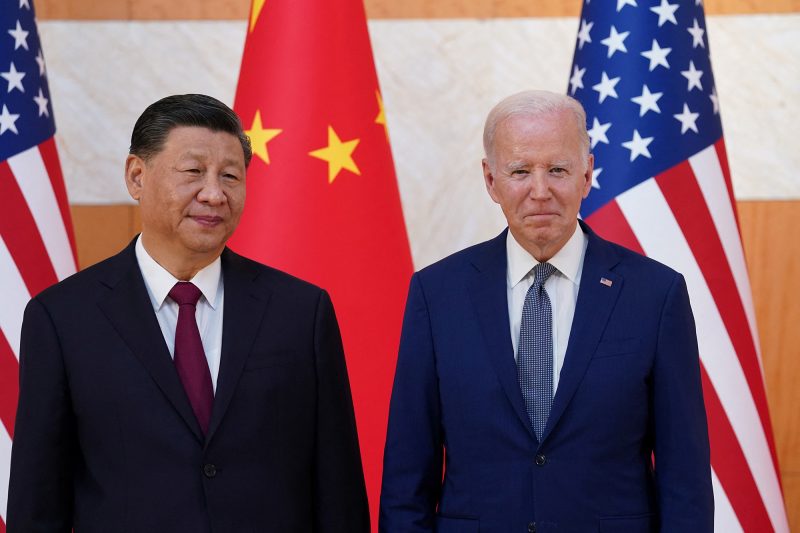US President Joe Biden referred to his Chinese counterpart Xi Jinping as a “dictator” on Tuesday – a remark that Beijing slammed as “absurd” and “political provocation”, in fresh signs of trouble for already strained ties between the world’s two biggest economies.
Referring to the alleged spy balloon found flying over US airspace earlier this year, Biden said, “the reason why Xi Jinping got very upset in terms of when I shot that balloon down with two box cars full of spy equipment in it was he didn’t know it was there.”
“That’s a great embarrassment for dictators. When they didn’t know what happened. That wasn’t supposed to be going where it was. It was blown off course,” he added.
Biden also said China “has real economic difficulties.”
Also on AF: China Says the US is Creating an Illusion It’s Keen to Engage
The US president made his comments at a fundraiser in California – an event that usually gets less media coverage – just a day after his top diplomat Antony Blinken returned from a two-day visit to China aimed at stabilising ties at their lowest point in decades.
In an online interview after his visit, Blinken had said the spy balloon saga “chapter” should now be “closed”.
It was unclear why Biden made the comments on Xi – China’s most powerful leader since Mao Zedong after he secured a precedent-breaking third term as president and head of the Communist Party.
Xi, who met with Blinken on Monday, has not publicly responded to Biden’s comments. However, speaking at a regular press briefing on Wednesday, Chinese foreign ministry spokesperson Mao Ning slammed Biden’s comments as a “public political provocation”.
‘Absurd, irresponsible’ comments
Ning said Biden’s comments “go totally against facts and seriously violate diplomatic protocol, and severely infringe on China’s political dignity,” according to a report by the Associated Press.
“It is a blatant political provocation. China expresses strong dissatisfaction and opposition,” the report quoted Mao as saying.
“The US remarks are extremely absurd and irresponsible,” she said.
Mao also restated China’s claim that the balloon was meant for meteorological research, not spying, and that it was inadvertently blown off its path.
“The US should have handled it in a calm and professional manner. However, the US distorted facts and used forces to hype up the incident, fully revealing its nature of bullying and hegemony,” she said.
China has previously slammed Washington’s reaction to the spy balloon, calling its takedown by the US military “unbelievable, almost hysterical”.
Stabilising ties
China has said its relations with the US are at their lowest point since formal ties were established.
During Blinken’s trip to Beijing, the American diplomat met with Xi and the two agreed to stabilize the intense rivalry between the two super powers so it did not veer into conflict.
The meeting failed to produce any breakthroughs on differences over key issues.
But the two sides did agree to continue diplomatic engagement, with more visits by US officials in the coming weeks and months. Biden said later on Tuesday that US climate envoy John Kerry may go to China soon.
The US President has said on Monday he thought relations between the two countries were on the right path, and indicated that progress was made during Blinken’s trip.
On Tuesday, Biden said Xi had been concerned by the so-called Quad strategic security group, which includes Japan, Australia, India and the United States. He added that he previously told Xi the US was not trying to encircle China with the Quad.
“He called me and told me not to do that because it was putting him in a bind,” Biden said.
Biden is set to meet Indian Prime Minister Narendra Modi this week and China is expected to be a topic of discussion between the two leaders.
- Reuters, with additional inputs from Vishakha Saxena
Also read:
Blinken Lauded After Discussing Taiwan, Russia in China Talks
China Open to Using US AI Tech, Xi Jinping tells Bill Gates
Banned Nvidia Chips Available in China’s Underground Markets
Stifling China’s Progress ‘Disastrous’ For US: Yellen – NYT
























